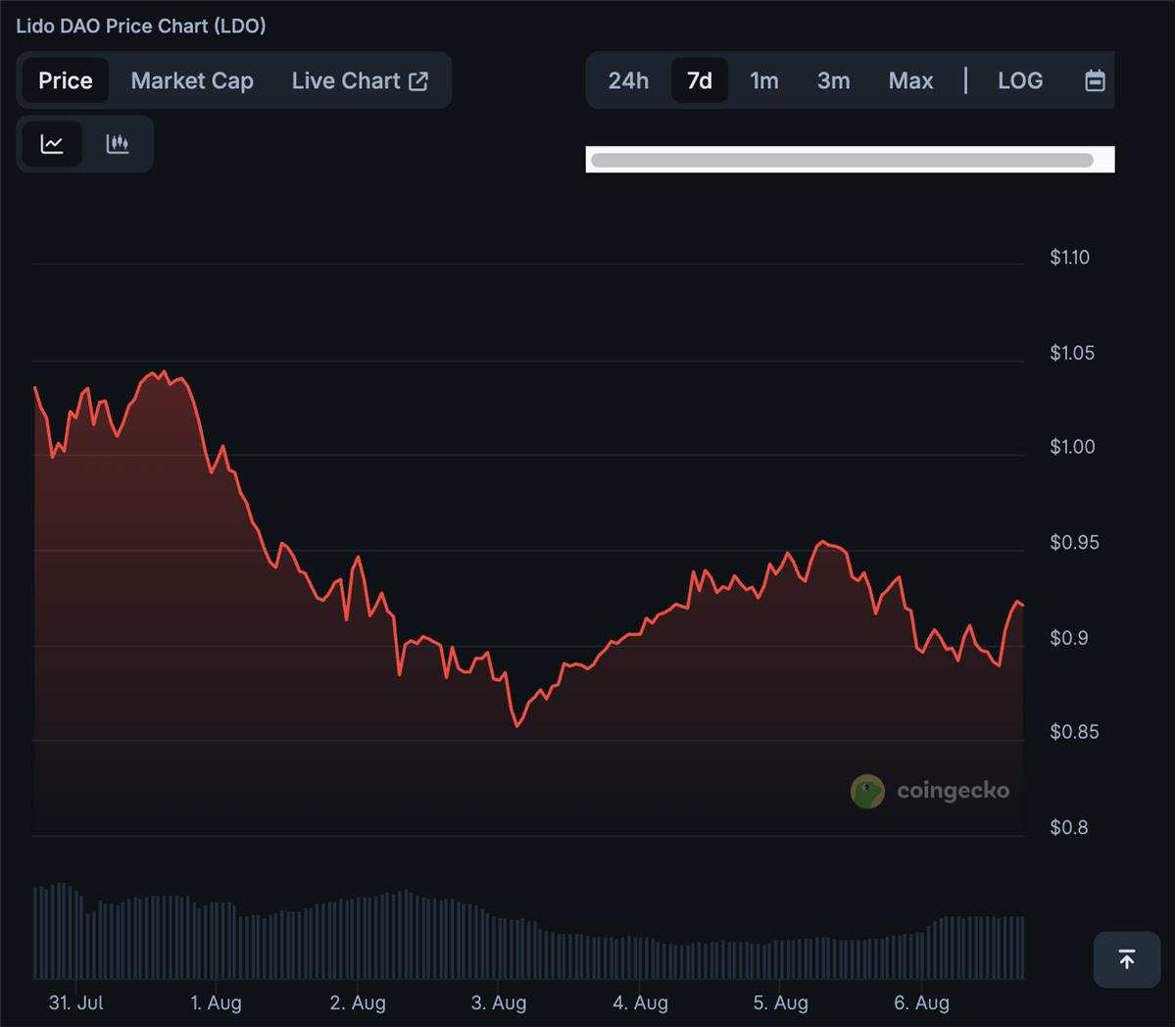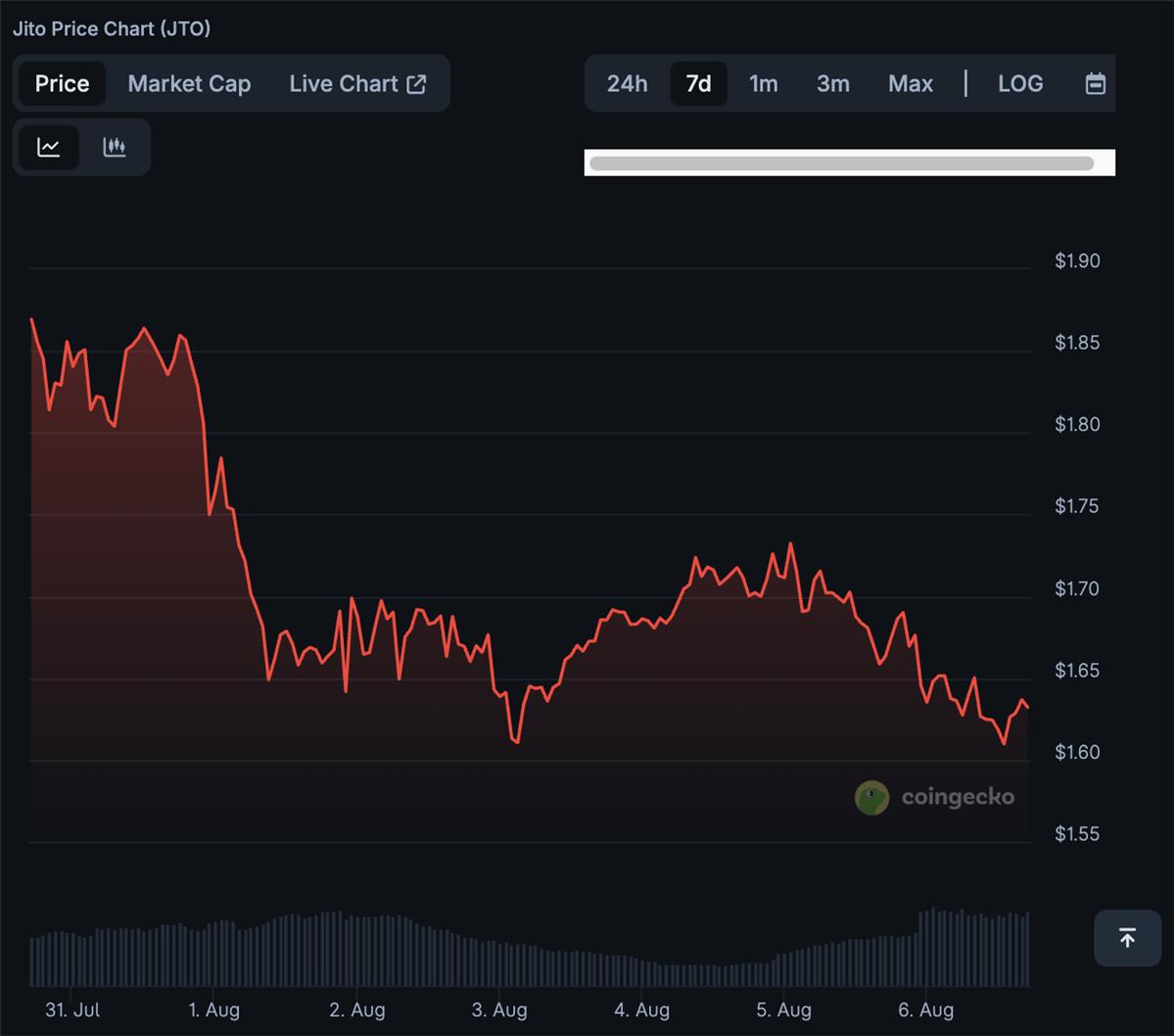Under the new framework, liquid staking receipt tokens may be used in DeFi without triggering securities registration, unless the underlying assets are securities.
The U.S. Securities and Exchange Commission has issued groundbreaking guidance clarifying that certain liquid staking activities do not constitute securities offerings, marking a significant regulatory milestone for the cryptocurrency industry. The announcement, released on August 5, by the SEC's Division of Corporation Finance, provides much-needed clarity for major liquid staking providers including Lido and Jito.
The guidance specifically addresses liquid staking, where cryptocurrency holders deposit digital assets through a protocol or third-party provider and receive liquid staking receipt tokens in return. These tokens serve as proof of ownership while maintaining liquidity for use in decentralized finance applications.
"Today’s staff statement on liquid staking is a significant step forward in clarifying the staff’s view about crypto asset activities that do not fall within the SEC’s jurisdiction," said SEC Chair Paul Atkins.
This marks one of the initial tangible results of Project Crypto, the SEC’s broader initiative aimed at modernizing securities regulations for digital assets. In contrast to former Chairman Gary Gensler’s stance that most cryptocurrencies likely fall under the agency’s jurisdiction, current SEC Chairman Paul Atkins took a different view, stating: “Contrary to previous SEC claims, the majority of crypto assets are not securities.”
What the SEC Actually Said
The Division of Corporation Finance outlined that liquid staking activities do not involve securities offerings under Section 2(a)(1) of the Securities Act of 1933 or Section 3(a)(10) of the Securities Exchange Act of 1934. This means participants in liquid staking are not required to register with the SEC.
The guidance covers earning and distribution of rewards, slashing mechanisms, minting and redeeming of staking receipt tokens, holding assets in wallets or smart contracts, and facilitating the staking process. Crucially, this view extends to secondary markets, whereby trading these tokens on exchanges or DeFi platforms also does not require securities registration.
However, there's an important catch: this exemption only applies when the deposited crypto assets themselves are not part of an investment contract. If the underlying assets are securities, then the liquid staking tokens would also be considered securities.

Lehman Brothers Comparison Sparks Debate
The statement triggered immediate controversy. Amanda Fischer, who served as Chief of Staff under former SEC Chair Gary Gensler, claimed in a post on X that the SEC’s approach to liquid staking essentially “blesses the same kind of rehypothecation that brought down Lehman Brothers.” Her comparison underscores concerns that, much like in the lead-up to the 2008 financial crisis, reusing customer collateral could pose systemic risks.

Fischer’s criticism drew swift backlash from the crypto community:
-
Matthew Sigel, head of digital assets research at VanEck, called her comments self-contradictory, pointing out the inconsistency in claiming both SEC overreach and absence of oversight.
-
@sh0edog (Joe Doll), general counsel at Magic Eden, labeled her post “incredibly misleading,” accusing her of either ignorance or intentional mischaracterization.
-
@0xMer (Mert Mumtaz) from Helius Labs slammed her for comparing decentralized, transparent systems to the opaque practices that led to 2008’s financial collapse, calling the analogy “insane.”



Market Reaction
However, the SEC’s announcement did not appear to trigger a positive price reaction for major liquid staking providers.
Lido’s native token, LDO, is trading at $0.92, marking an 11.1% decline over the same period, according to CoinGecko.

Jito's native token, JTO, is currently trading at $1.63, down 12.7% over the past 7 days. On August 5, Jito Labs also introduced governance proposal JIP-24, which aims to redirect all revenue from the Block Engine and BAM directly to the Jito DAO treasury. At present, Block Engine revenue is split evenly, with 3 percent going to Jito Labs and 3 percent to the DAO. If the proposal is approved, the entire 6 percent fee, along with all future BAM-related revenue, would be permanently allocated to the DAO treasury.

 PEPE0.00 -4.62%
PEPE0.00 -4.62%
 TON1.34 -1.98%
TON1.34 -1.98%
 BNB619.70 -2.80%
BNB619.70 -2.80%
 SOL82.82 -4.79%
SOL82.82 -4.79%
 XRP1.40 -2.88%
XRP1.40 -2.88%
 DOGE0.09 -3.76%
DOGE0.09 -3.76%
 TRX0.28 -0.21%
TRX0.28 -0.21%
 ETH2018.85 -4.20%
ETH2018.85 -4.20%
 BTC68709.92 -2.32%
BTC68709.92 -2.32%
 SUI0.93 -3.85%
SUI0.93 -3.85%













